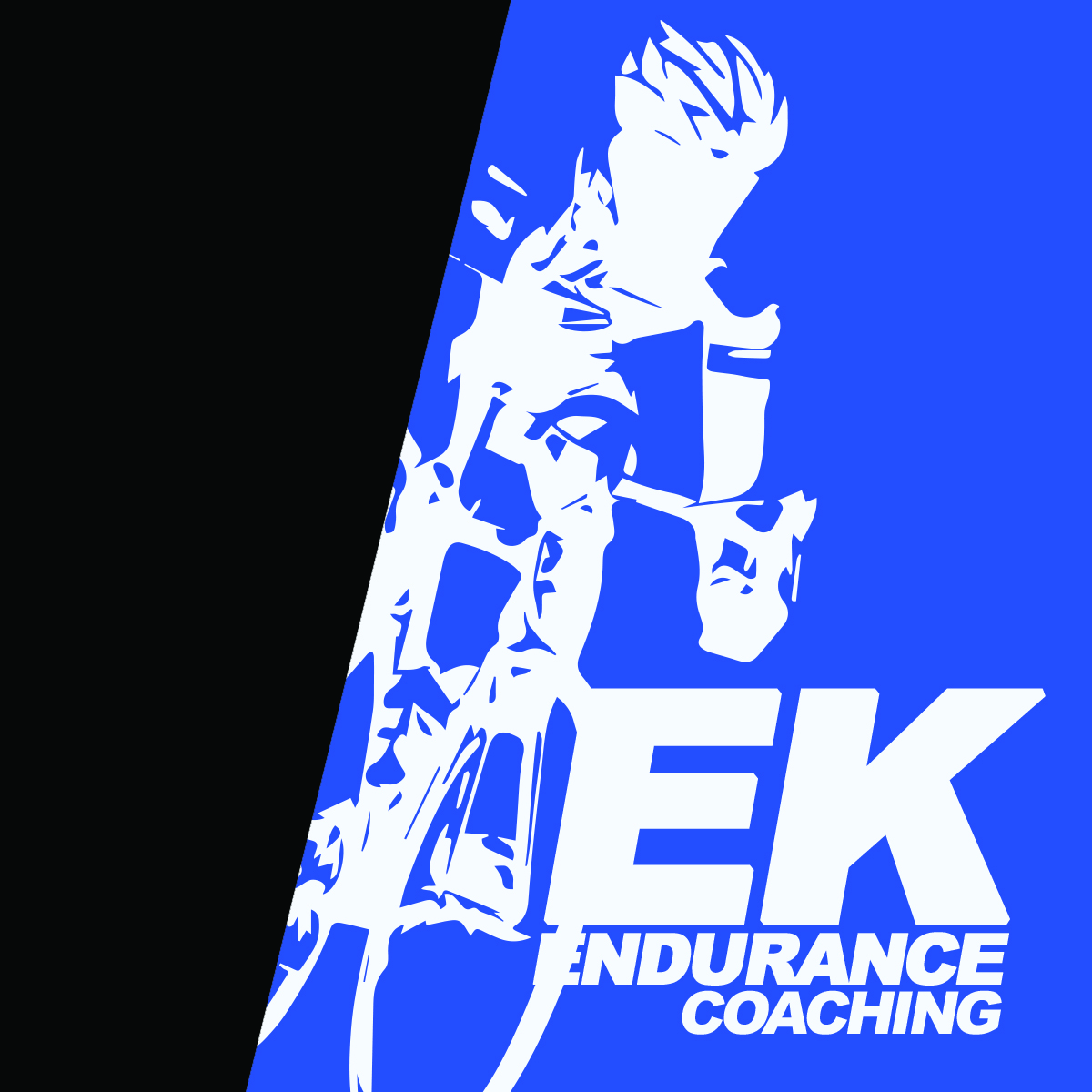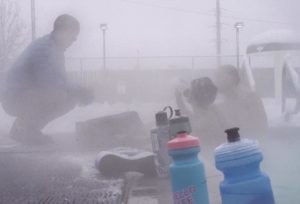With the racing season winding down many Triathletes already have their sights set on next year with bigger and higher goals. I got my first call 3 days after one of my athletes completed IM Boulder with her first ever podium finish at the 140.6 mile distance. “Hey, so… I wana do X next year” Yes, she is a driven one. Whether it took 4 days or 4 months planning next year’s big event can be difficult, there are many factors to consider. If you live anywhere that has what we call winter doing an early season Ironman can be a tough call. The training and preparation required takes time. Time in single training session and time in terms of weeks and months of consistency.
Here are a few things to consider when preparing for a big, early season A race.
Don’t worry about what you cannot control:
Many athletes turn hills into mountains. You have to train in winter. Yup. Get over it. Don’t over react to your situation. Get over the fact that you are not going to be the racer you were last year. You might be better. How? Focus on one thing.
Be at your best, for this race, this year. Not last year, or when you were in college or some obligatory mark or key workout at some pace. Forget about who ran what pace last year. The time of the winner or last AG qualifier and focus on you. I tell my athletes all the time, “The only way you have any chance of achieving your goals is by having YOUR best race” period.
Your periodization doesn’t change:
Your time frame does change but the process should be similar. Look big picture. A year long look. It’s November as you read this most likely. You are racing at… say Texas in April or maybe a race in May like St George 70.3. Work backwards from your race day.
You’ll find you need to cut a phase or two short or, if your coach is real innovative, you’ll throw out the standard periodization, or some fancy “reverse” method and come back to you, the unique athlete. Yes, again you’ll simply focus on yourself. What do you need to do to get back to your best. Strengths, weaknesses, specific prep, equipment, mental prep, nutrition, etc.
How can you be better than last year?
One’s preparation for a race does not just encompass the 6 month lead up to that race. What did you do last year? The year before that? What have you don’t in the last 5 years? Does that all disappear as soon as you cross the finish line? No. Did you take 6 months totally, completely off and gain 15 lbs. well. Some of it may be gone. Even in this case your fitness can come back quickly with the proper approach. You need time off. You need to recover physically and mentally but you also need to build upon last year. How much is right for you? Tough to say, everyone will be very different. Here is a start. If you had a long cycling season or just destroyed yourself at ironman whatever start with 1 week totally off. Passive recovery. Massage etc. Then 2-3 more weeks easing back into things with recovery efforts on the bike, in the pool and some VERY short runs. 3 times a week and avoid 2 days in a row of any workouts. Sounds light I know. That’s 4 weeks. This should get you back to feeling normal. After I did lake placid in 2011 it took me 6 weeks just to feel normal. Every race is different, so be cautious here.
Step one.
As illustrated above don’t take 3 months off. I like to do two, shorter rest phases. First one for a few weeks after you’re A race, then get back to some unstructured training. Or as I call it, working out.
Your second will generally come around the holidays. That time of year when travel, family, parties, and weather all come together and drive a huge lightsaber through your training plan. This is rest phase number 2. Just go with it here. Do what you can. No rush. This where so many triathlete fail. Before the season even starts. Take 3-6 months off and then struggle to get back to their top form from last year. I said earlier you might be better than last year. How? Because it not last year. Depending on how high a level you are at you might be able to build from last year be even better with a shorter build up.
- Rest and recover FULLY from your last A race.
- Take stock in where you are at. Do a field test, reset your threshold watts, run pace, etc.
- Start building back into training from where you are at NOW. Not last year, or when you were in college, etc.
OK now to the nuts and bolts. It’s January 1st, you’re hung over and your race is rapidly approaching. Time to manage winter. One of the most popular articles I have written is “The 4 keys to winter training”. This is not only for people who have all summer to train. It’s for you too. The topics and methods discussed here are the foundation to training in the winter. And remember, you can’t control the weather, how you react to it can mean the difference between your best race and excuses about the cold. This article and the training you derive from it will seem basic. And that’s the most important thing, the fundamentals. You don’t’ need the fancy brick sessions or the bike ride with the exact elevation profile as your race. You need to fundamentally be a better cyclist, a better runner, that’s how you’ll excel on race day. This past season the Boulder Tri Club won every club competition there was. Boulder 70.3 and IM. Club nationals and CO club championships. We did this by focusing on fundamentals. No fancy training sessions of riding the trainer on the pool deck, no practicing transitions. “Make sure you have a steady, continues effort from start to finish” I’d say. “Don’t’ try and gain time in transition, don’t make any mistakes.” “Don’t go out to hard on the bike” etc. The conversation was the same with the elites as it was with the first timers. We won by huge margins on better fundamentals and better race execution. Despite races changes point systems to favor smaller teams.
Monitor progress:
The only way you can race at your best on that day with what you have on that day is to know what you have. You and your coach should be monitoring your progress through testing and/ or rigorous inspection of your performance in training. 3 areas here. Perceived exertion, Heart rate and whatever is the causing those to change. Watts on the bike, pace swim swimming and running. The last metric is scientifically based this is where proper training has to begin. The saying written on your arm and your believe in yourself are important but if you training doesn’t start with the science, your just playing roulette. Know what you can and cannot do on race day. Don’t hold yourself back but knowing what you can NOT do is important. At almost every long distance race my elite athletes get run down and passed only to see those and more competitors again before the line. A delicate balance of aggressive and smart racing is a deadly weapon to have.
Other obstacles and tools to consider:
Heat:
This is likely to be an issue for most. You are in cold, snowy conditions, your knees haven’t seen day light in months and now you are off to crush yourself in 85 degree (or higher) temps for hours upon hours. Even if you do well in the heat this can be shock to the system. You have two options here, training in the heat with extra clothes or inside with the heat cranked up. Or doing post training sauna time. There is conflicting evidence on which works best. But either way it’s likely to be about functionality. Do you have a sauna available? One right after you train? If so start with 10 minutes right after training 2-3 times a week and gradually increase your time up to 20’ max. Do this as soon as you are done with a training session. Hydrate well after!
Other option is to do heat training. Doing endurance paced sessions at race day temps. This can be VERY tough on your system. Be careful not to overdo this. It can be dangerous or at best extremely fatiguing and disrupt your training quality and consistency. Some more elaborate heat training has been done inside with a heater nearby, temperature and humidity gauges. Get the pain cave to likely race conditions and you’re off!
Note** DON’T do hard interval workouts like this. It’s likely to be too much on your system and border line dangerous.
Race prep:
Another issue with early season races you go from training to race day with no prep or training races. As many know I am and advocate of racing in smaller shorter races to prep for you big half or full IM. It makes us sharp, it’s a triathlon. You just can’t mimic that in training. Look for an indoor tri at your local gym or try to organize your own. In Colorado there are a few winter duathlons. No swim but it’s still a race. Even a running race can shake out the cobwebs. Key here is other people to compete with at the same time. Don’t just do your own swim/bike/run workout. While that might be a good thing to do it is not race prep. Race prep is not on your time, it’s on race time.
Doing an early season race has a large set of challenges but with a bit of planning and the right mind set you can still have your best race ever.

